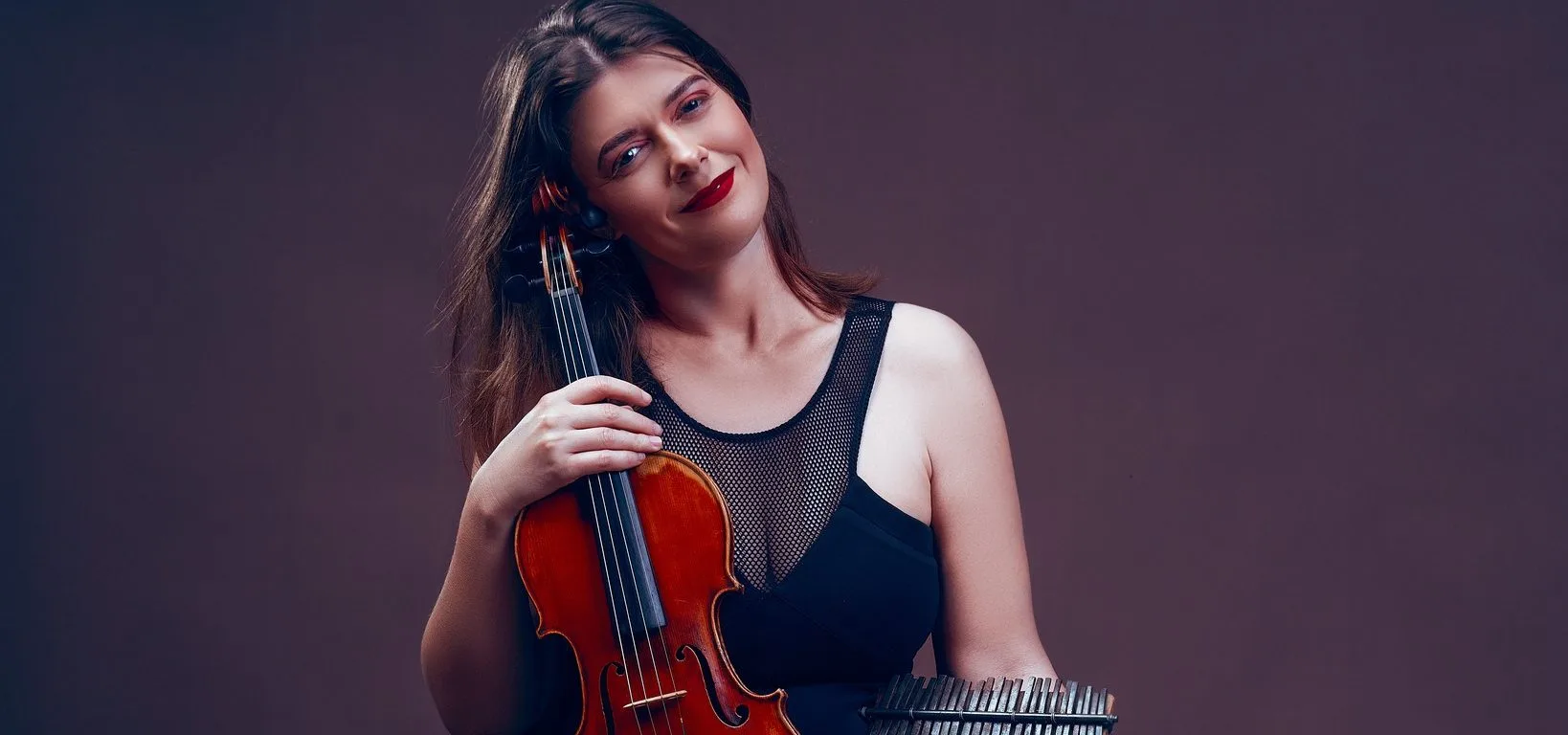I AM the Polish woman who has been called by her Spirit to Zimbabwe to fulfill my role as a Svikiro in the place that I am called to.
As I said in my talk at the University of Zimbabwe, when I talked about the journey, the process, and the conclusions, the question is not whether or not what I am saying is true. I know it is true, and within the Spiritual realm, our own journey and our own relationship with Spirit is the ‘expertise’ that makes anything true or false.
This story is true. It is a story that I have lived, that my body and my spirit have lived, for many years now – first unconsciously, because I didn’t know what was happening to me, and now consciously, because now I know how to learn and how to listen to my Spirit, and I am starting to understand what the purpose of this calling is.
Spirituality in the human story, meaning in all countries and cultures, is a mystery. As we say in Shona, ‘zvinhu zvinotyisa’ — these are the mysterious things, the things that, as my teacher and elder Dagara Shaman Malidoma Some wrote, ‘in my culture we have no words for the supernatural — the closest thing we have is ‘the thing that knowledge cannot eat.’’
Spirituality is a mystery, but it is a mystery that we need to work with, consult with, connect with, usually daily (for some people less, for other people like myself, it is the air that we breathe).
It is a pity that the Zimbabwean spiritual landscape has become so rigid and small-minded in its thinking, that even when talking about something as wild, majestic, awesome, huge, powerful and divine as Spirit, we can only talk in terms of small-minded rules, categories, restrictions (as if we human beings are the ones making up the rules!) and a very limited understanding of tradition.
Tradition is a source of knowledge, but it is not the ultimate source. With this kind of compartmentalising approach, how do we expect the Big Spirits to come to us, and tell us the Big Picture stories? My entire presentation from the University of Zimbabwe is now available online, on YouTube, and can be listened to, and I encourage anybody who is curious about my journey to do so.
I also encourage everyone to read my books, listen to my other recordings, listen to my recordings, watch my movies, watch the recordings from the Nyamatsatse Festival and the artistic productions of Mhondoro Dreams Productions, and then tell me honestly if they think this is all being led by a petty spirit, by a small-minded spirit, or by a malicious or bad spirit.
Within the Daily News article, Professor Obvious Vengeyi says in his comments on my presentation that “Among the Bantu she could be possessed by a shavi, not a mudzimu/ancestral or territorial spirit. Mudzimu spirit is associated with the host in terms of bloodline.”
However, it is well known within Chivanhu that the Mhondoro Spirits (as well as the Magombwe), when they come, they are not necessarily associated with a bloodline, and that it is to the benefit of the Spirit that the Mhondoro be a stranger to the territory to which they are called. There is a very pragmatic spiritual reason for this — this is because the concern of Big Spirits go beyond the individual or the family. They are concerned with the collective, with big picture problems and big picture solutions.
If a human being who is the carrier of a big spirit is weighed down with too many individual obligations, family factions that require loyalty towards specific members of a collective as opposed to complete loyalty to the voice and purpose of their spirit, then that human being cannot actually fulfill their role as a Mhondoro.
As I say in my talk, the Spirit is above all pragmatic — this is what Chivanhu is known for, what it is best at, and what makes it such an eternally effective relationship between human beings and the Spirit(s). The article further on says, “He (Vengeyi) said if Wojtkowska’s claims are true, that she carries a mudzimu from one family in Zimbabwe then there would be need for a redefinition of the culture of spirit possession as it is known in Zimbabwe.” There are many issues with this statement — even within Chivanhu thinking about the Spirit only in terms of one family line, when Big Spirits have Big Projects that concern entire territories and groups of people, and sometimes just humanity as a whole (as we see more and more these days — it is not just human beings who are ‘globalising’, it is the Spiritual landscape as well — and again, there is a good reason for this!).
Also, the culture of spirit possession as it is known in Zimbabwe is a wild culture. It is not something that is strictly known (it is always like this, it is always like that), because again, to talk about spiritual things is to talk about wild and mysterious things.
So when Vengeyi says, “maybe she tries to understand Shona culture as a religion similar to Judaism”, it seems that he did not listen to my talk at the University of Zimbabwe. I repeatedly say in my talk that Chivanhu is not a religion, and we cannot understand it in the same vein as a rigid spiritual system that tries to impose human laws and human understanding on the Spirit.
Chivanhu is about relating to the Spirits that relate to us — whether they are recent ancestral spirits, Water Spirits, Mountain Spirits, Sky Spirits, Earth Spirits, or ancient ancestral spirits who relate to the entirety of humanity.
We as humanity, in fact, all have common ancestors. Why then, is it impossible for a Common Ancient Ancestor to call any human being anywhere? Why are we also more concerned with what the recent dead have to say (when the recent dead have all kinds of work that they are doing, and cleansing that they are engaged in), than what the Ancient Ancestors have to say to us — yes, as a larger group of people? Why are we also surprised that they might want to talk to us about our Ancient History (as humanity), and therefore our Ancient Purpose (as humanity)? Vengeyi then says something that every spiritualist knows is not true: “Chivanhu … has no room for outsiders.”
This is simply not true. In fact, within Chivanhu (the human thing), there is no such thing as an outsider. All human beings have a place and a purpose in the web of spirituality and the web of creation. Vengeyi is not a spiritualists, and so he thinks in terms of categories and restrictions, and ‘us and them’. The Spirit does not think this way. Ganda harina basa kudenga.
Then Vengeyi says, “She is failing to explain what is happening to her.” This is an unfair statement, and makes it seem as if I lack clarity in what I write and what I say. I challenge anybody who thinks that I am failing to explain what is happening to me to read my books, listen to my talk, and then come to me and tell me with a straight face that I am ‘failing to explain’.
In fact, none of the people who responded to my talk talked about the most important thing — how a person is called. For me, the calling has been through a tremendous fire in my body that, through many ceremonies and ritual processes (over many years) has shaped and cemented my relationship with the Great Spirit that is guiding this journey.
Following the call has not been a choice, and it has not been an easy process, and it has healed me, as my body becomes attuned to the Spirit(s) that it is relating to as a homwe. As Professor Chitando comments in the article, “Religions are always open to throwing up surprises. Therefore it might be possible for the ancestors to reach out, beyond their lineage.”
Indeed, because it is the Spirit that runs our understanding of what relating to the Spirit is about — and there is always a purpose behind it, there is always a good reason behind it. It is because the Spirit is trying to say something and trying to do something, and trying to communicate something. As I said in my talk, the Spirit is not only interested in pragmatism, but it is also interested in surprising people — that is usually how it gets the attention of human beings.
Anybody who has been on a spiritual journey knows that the reason why we start to pay attention to the Spirit in the first place is usually because something surprises us — whether it be good or bad, it is about catching our attention. When we do our Nyamatsatse Festival this year (Theme: Africa’s Spiritual History), then we will have a gathering of Spiritualists not only from Zimbabwe, but from the region of Southern Africa and beyond, and we will be able to sit down and talk about these important things. Chivanhu is not itself in isolation — it is a global reality that all people have had to negotiate in their own ways.
I ask that you do not get distracted by the supposed ‘drama’ of having a murungu become a svikiro (which is in itself neither impossible nor so difficult — at least, not for the Spirit), and instead ask yourselves what the purpose of such a calling is, and what it heralds, what kind of return, and what kind of revival.
My Spirit is not a Shave spirit, nor an Alien Spirit, nor is it a Chikwambo — my Spirit a Big Spirit on a project of awakening, uniting, reviving, cleansing, and healing. I am not the first spiritualist to be talking about these things. I will not be the last. What you see with me, will happen more and more often. There is a big spiritual project happening at the moment, a spiritual revolution in Southern Africa that is affecting the Spiritual landscape of the entire world. Zimbabwe will go back to having its royal place in the order of things, spiritually — but Zimbabwe was never for solely one group.
Zimbabwe has been a beacon for humanity for a reason, and it will go back to being that beacon. We are seeing a great awakening in this part of the world.
(Klara Ana Rosa, who prefers to call herself MaSibanda, is a Zimbabwe-based Polish musician, writer, actor, director, healer and ceremonialist. This is her response to an article titled ‘I am a Zimbabwe svikiro, says Polish woman,’ which appeared in the Daily News on Sunday (4 to 10 February 2024).








